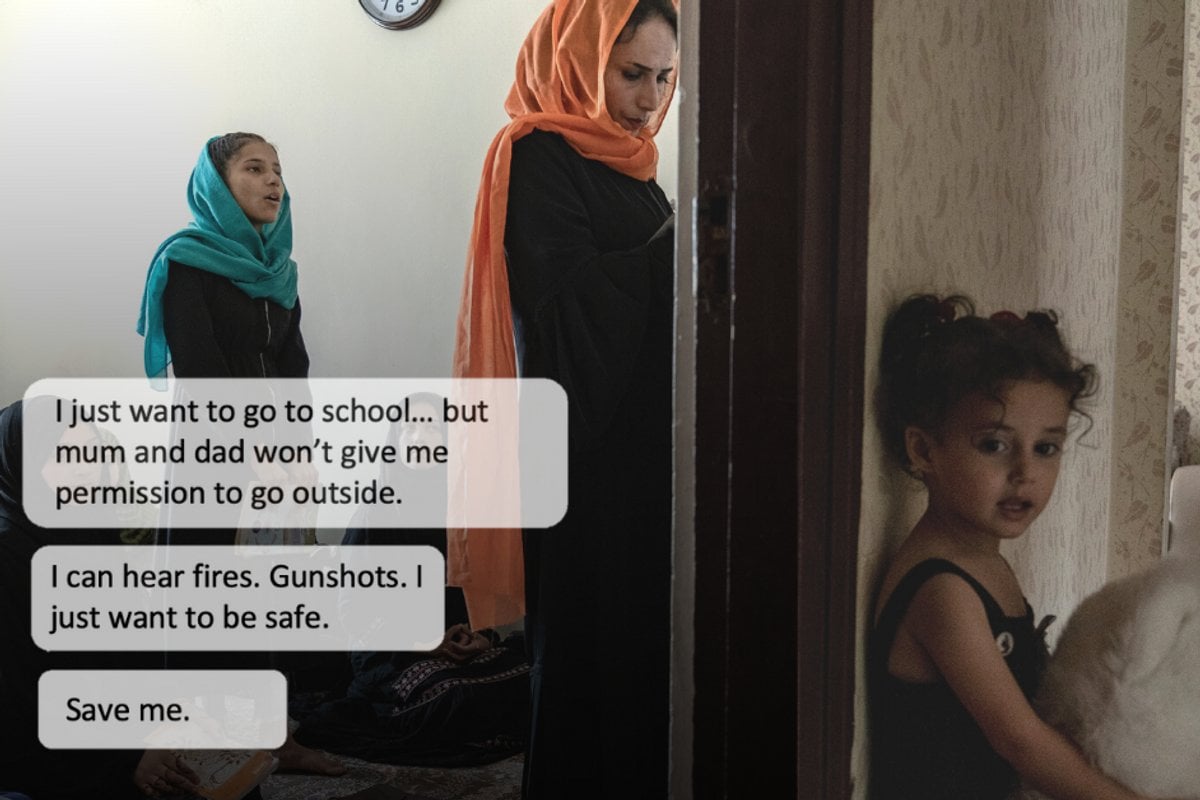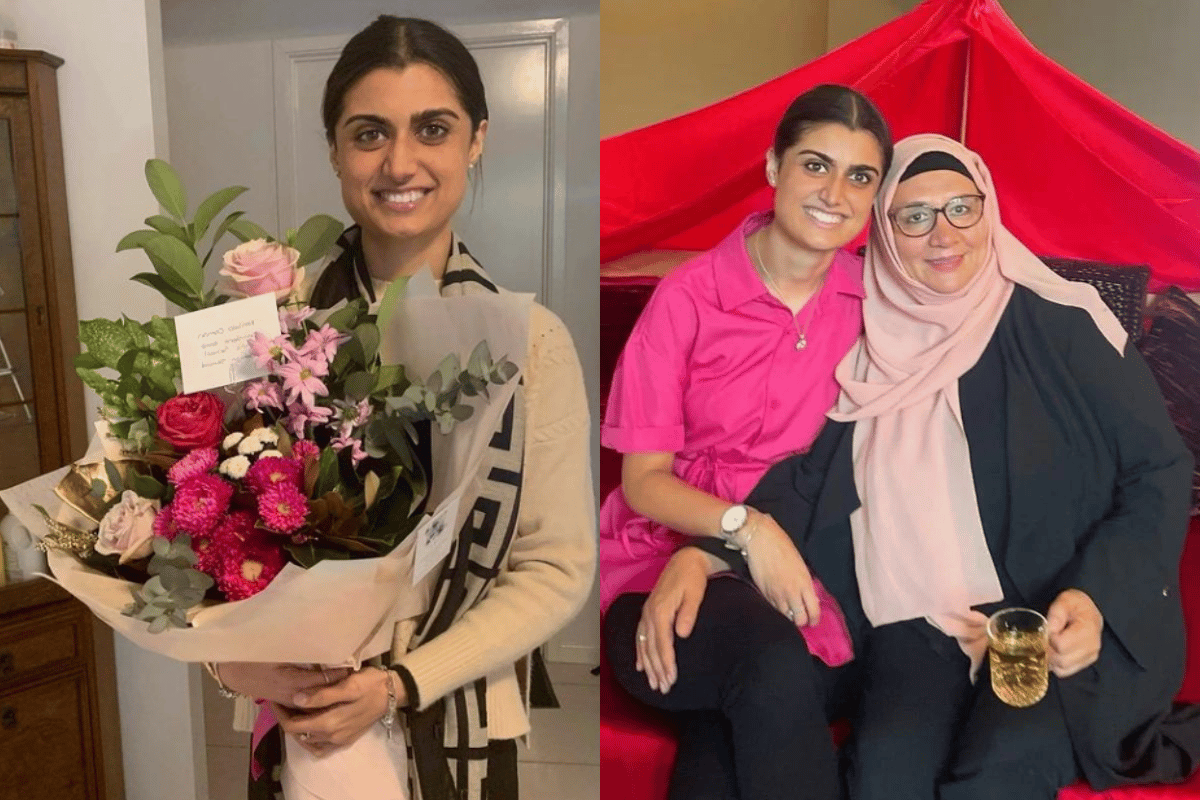
One year ago, Neilab Osman filed a humanitarian visa application for her loved ones to come to Australia from Afghanistan.
It was clear the situation in Kabul was escalating and that her family – 16 close relatives – desperately needed to flee to a place of safety. One relative of Neilab's said she feared that her degree in law and political science would cost her life.
Over the last year, 22-year-old Neilab - a second-generation Afghan-Australian living in Sydney - has worked tirelessly to try to get her loved ones to Australia, or to a place of safety.
It has taken hundreds of pages of visa applications, countless hours spent on the phone with immigration, email petitions, legal advice sessions, numerous MP meetings and rallying donations.
And every week for the past year, she has received desperate messages from Afghan civilians – from both her family and sometimes even complete strangers.
On a FaceTime call last August, Neilab's seven-year-old cousin showed her his packed suitcase. He told her he was "ready to come to Australia" and had been carrying the suitcase up and down the stairs of his apartment block so he could get strong. He slept next to the suitcase most nights, luggage mostly filled with random toys that non-government organisations had once gifted to him.
Just last month, Neilab received a voice memo from this same cousin, who remains stuck in Kabul.
"I can hear fires. I just want to be safe," he said. "My uncle is going to try and help us. I just want to go to school... but my mum and dad won't give me permission to go outside. Save me. The fires won't stop."

